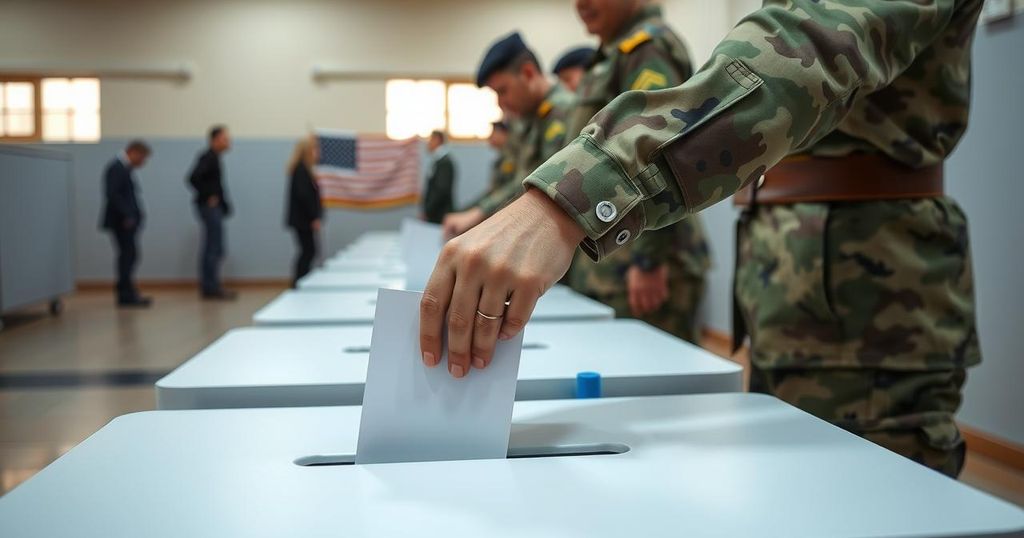Chad Votes in Historic Election Amid Boycott and Low Turnout

Chad held a general election amid low voter turnout due to an opposition boycott, with preliminary reports indicating only 38% participation. President Mahamat Idriss Deby Itno called for mass participation, despite claims of predetermined results and electoral irregularities. Security concerns and public skepticism regarding the electoral process impact the country’s transition to democracy.
Chad conducted a general election on Sunday to facilitate a return to civilian rule following three years of military governance. The government anticipated low voter participation, which was confirmed by preliminary reports indicating a turnout of only 38 percent. Opposition parties declared a boycott, asserting that the election results were predetermined. Consequently, candidates supporting President Mahamat Idriss Deby Itno were positioned to benefit from the significant voter apathy. Many citizens expressed skepticism about the electoral legitimacy, with some stating that voting felt meaningless due to a lack of genuine options.
President Deby, who came to power after the military takeover in 2021, encouraged all eligible voters to participate in what he described as a “historic day.” Despite the official narrative of a successful election, opposition figures claimed the vote was compromised, with reports of irregularities, such as missing ballots. This electoral process occurs amid ongoing security challenges, particularly from the extremist group Boko Haram, and growing tensions related to Chad’s involvement in regional conflicts, notably in Sudan. Observers, including foreign election monitors, were present to ensure fair conducting of the elections as Chad navigates through its transition to democracy.
Chad has faced significant political instability in recent years, culminating in a military takeover in 2021 following the death of long-term leader Idriss Deby. The recent elections are viewed by the government as an essential step towards restoring democratic governance, although opposition factions contest the validity of the electoral process. The call for a boycott highlights deep-seated frustrations among the population regarding the effectiveness and transparency of the political system. Voter turnout and sentiment are critical indicators of public confidence in democracy and governance in Chad.
In summary, Chad’s recent general election reveals a complex interplay between government aspirations for democracy and widespread public disenchantment. The low voter turnout coupled with systematic opposition boycotts underscores the challenges facing the nation’s political landscape. As Chad transitions from military rule, the credibility of its electoral processes will be crucial in determining the future legitimacy of its governance.
Original Source: www.rfi.fr







